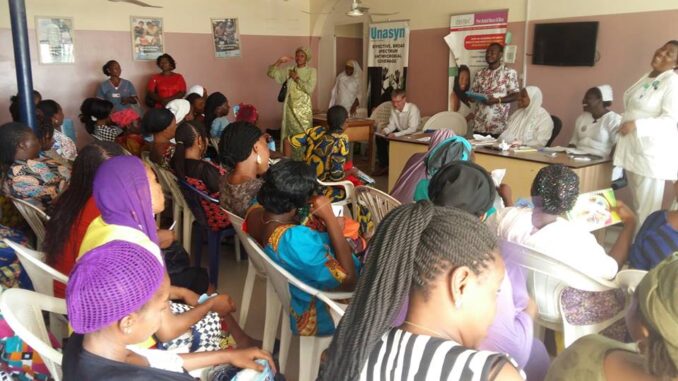
By Divine Sam
The situation in Akwa Ibom State regarding family planning (FP) services is alarming, with communities, especially in rural areas, facing severe shortages of FP commodities. This shortfall has escalated health risks for women and girls, leading to an increase in maternal mortality, teenage pregnancies, and unsafe abortions. The state’s maternal mortality rate stands at 520 per 100,000 live births, one of the highest in the country, as revealed by the Nigeria Demographic and Health Survey of 2018. The survey also highlighted a 12% rate of teenage pregnancy and a significant number of abortions among young people.
Local community leaders, such as Eteidung Akpan from Ikot Ebom Itam in Itu Local Government Area, have expressed concern over the deaths of young mothers from childbirth complications. He advocates for family planning services to reduce such risks, citing the benefits of healthier women who can access education and employment. However, the lack of diverse contraceptive options in local health centers and the financial barriers posed by some providers hinder many women and young girls from utilizing these services.
In Ukanafun Local Government Area, the shortage of FP commodities at health facilities has been acknowledged by local health workers. Despite this, organizations like The Challenged Initiative (TCI) have made efforts to raise awareness and promote family planning in the region. In Mkpat Enin Local Government Area, some women, like Mrs. Asindi Joseph, have found family planning methods, such as the Implanon method, to be beneficial, improving their health and allowing them to better support their families.
Additionally, vulnerable groups, including mentally unstable women in Uyo, have also been noted as at-risk populations, as they are often exploited and left without access to family planning services.
Family planning services in the state are heavily reliant on donor funding, with the state government failing to release allocated funds for FP services. According to the state’s FP coordinator, there is a 32% unmet need for family planning services, and many women are unaware of where to access these services. Despite the state’s approved budgets for FP, there has been no financial release, leaving many communities without the necessary support. The lack of contributions to the national basket fund by the state has further compounded the issue, making it difficult to ensure a steady supply of FP commodities.
The call for improved funding, policy changes, and community awareness is critical to addressing the growing crisis and ensuring that all women and girls in Akwa Ibom have access to essential family planning services.